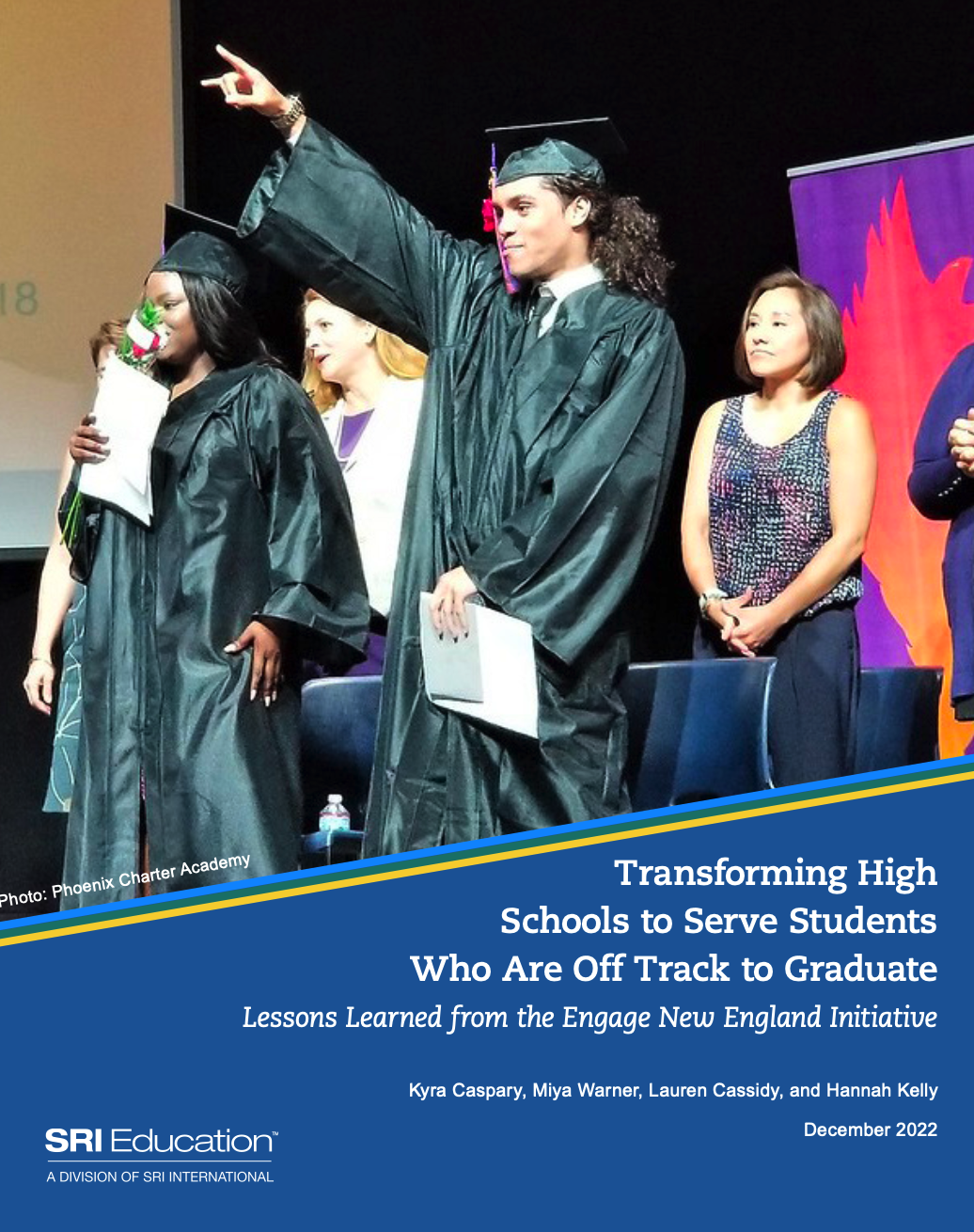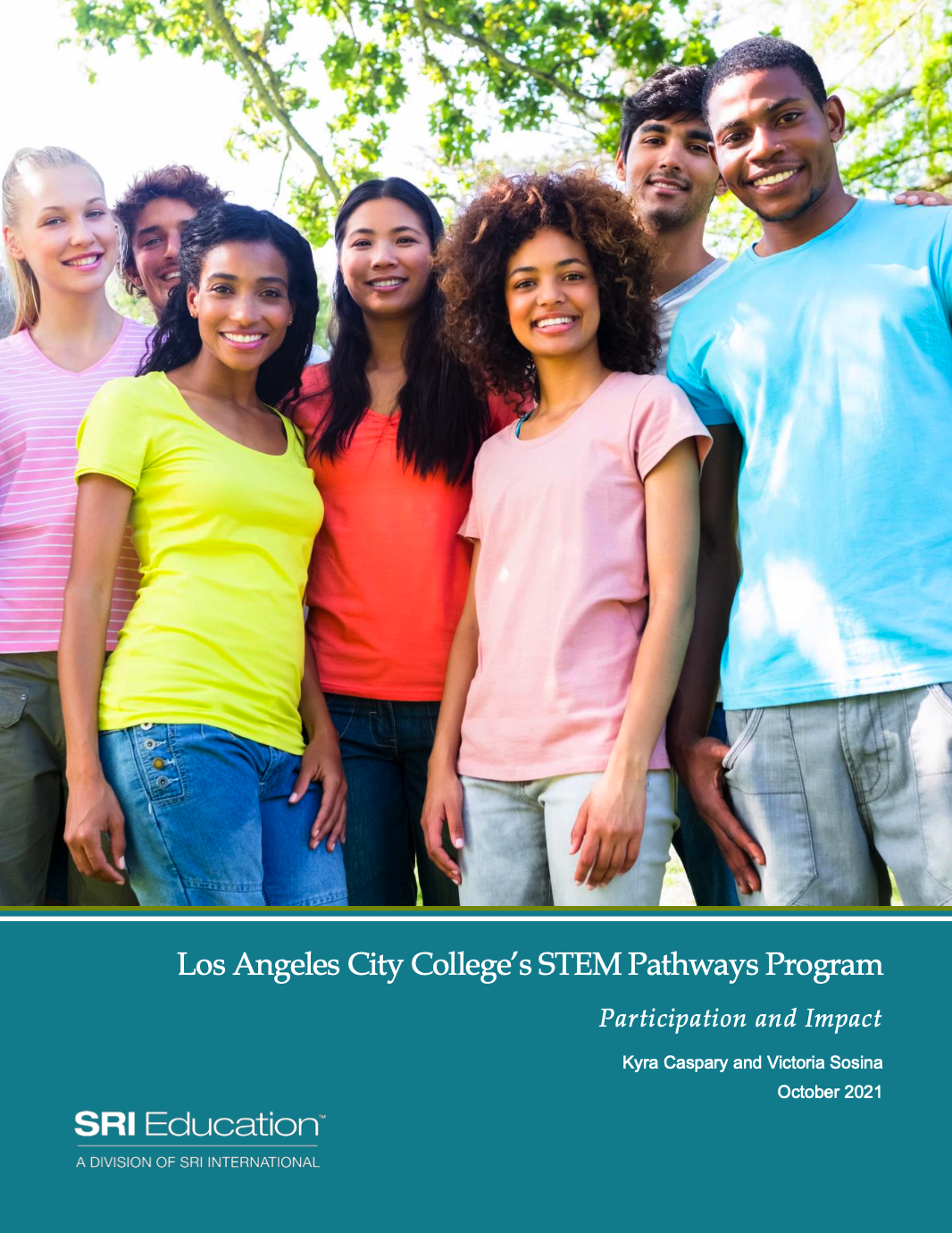Suzanne Donovan, executive director of the Strategic Education Research Partnership (SERP) Institute, and Vanessa Coleman, co-director of SRI’s Center for Education Research & Innovation, recently sat down for a conversation with Kori Hamilton Biagas to discuss scaling innovations that disrupt inequity and create system-level change.
In this research brief, we present findings from the Deeper Learning + Diffusion of Innovation and Scaled Impact Initiative (DL+D initiative).
In early 2021, the William and Flora Hewlett Foundation contracted with SRI Education to conduct a retrospective evaluation of the foundation’s Deeper Learning + Diffusion of Innovation and Scaled Impact Initiative (DL+D).
The Barr Foundation’s Engage New England (ENE) initiative was an effort to catalyze high school innovation by developing exemplary schools that support the success of students who are off track to graduate. Grounded in the tenets of positive youth development, the ENE initiative provided grants and technical assistance to support new or redesigned schools in … Continue reading Transforming High Schools to Serve Students Who Are Off Track to Graduate
This brief describes the approaches Engage New England (ENE) schools used to support academic case conferencing and their implementation of key practices.
This brief describes common facilitators and challenges experienced by Engage New England (ENE) grantees as they worked to further their instructional systems. It also provides some promising practices that grantees used to support these efforts or to address challenges.
This brief presents the lessons learned and common themes across Engage New England (ENE) grantees, as well as implications for planning and implementation that may be useful for subsequent cohorts of ENE grantees as they prepare to launch their programs or schools.
Los Angeles City College launched the STEM Pathways program in 2016 to improve STEM degree completion and transfer to 4-year colleges, particularly for low-income and Latinx students. With funding from the U.S. Department of Education, the program offered a variety of supports including Supplemental Instruction (SI), peer tutoring in STEM, a book and technology loan … Continue reading Los Angeles City College’s STEM Pathways Program: Participation and Impact









